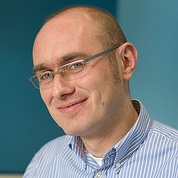 Here are my notes from the ‘Seed Combinators’: Startup Incubators 2.0 panel at SXSWi. The panelists were Paul Graham, Naval Ravikant, Marc Nathan, David Cohen and Joshua Baer.
Here are my notes from the ‘Seed Combinators’: Startup Incubators 2.0 panel at SXSWi. The panelists were Paul Graham, Naval Ravikant, Marc Nathan, David Cohen and Joshua Baer.
Definition: Accelerator programmes seek to nurture a seed of an idea and act as a launchpad for a start-up in its earliest stages.
What do they typically consist of?
- a small amount of money
- advice from real experts
- help pitching at a demo day for further funding
- access to an amazing network of advisors, angels, and VCs
Perhaps the most famous of all is Y Combinator, founded by Paul Graham and they have helped over 100 start-ups. Their method insists that you move to the bay area for the duration of their 3 month program, a very worthwhile commitment as you will end up building fantastic relationships with the other 19 startups going through the same experience.
How do you choose which one to apply to?
Either pick the one geographically closest to you or pick the one best if you can.
“It’s like picking a surgeon, you want the best you can get,” Paul Graham.
Myths about accelerators:
It’s only for young founders. Not the case. YC’s average age is 27 years old, but they have funded some in their 30s and 40s. (These are less frequent though probably because of the stage of life, family commitments, etc).
It’s all about the idea. Mainly it’s about the character of the founders, the quality of the people, specifically integrity and intelligence. “We pick people we like to be around”, Paul Graham.
In terms of ideas though what are they looking for?
An idea that solves a valuable problem. i.e. something people will pay for.
Stay local or go to the US?
If you are going global, come to the US. Many business ideas are “winner takes all”, and the US has the largest market and Silicon Valley is the best place to take advantage of it. But if your focus is on another region, stay in that area and apply to a local programme.
Don’t give up
Drew Houston was initially rejected first time round, later re-applied and is now going great guns with Dropbox.
Some accelerator programs:
Y Combinator (Silicon Valley)
Capital Factory (Austin)
Techstars (Boston, Boulder & Seattle)
Seedcamp (Europe)
HTC (Houston)
The Founder Institute (San Diego, Denver, Singapore, Paris, LA, SiliconValley, Washington DC, Seattle, New York)
Other reading:
My notes from the panel on getting your company funded is relevant to start-ups at a later stage of development.



[…] Panel: Seed Accelerators […]
[…] Panel: Seed Accelerators […]